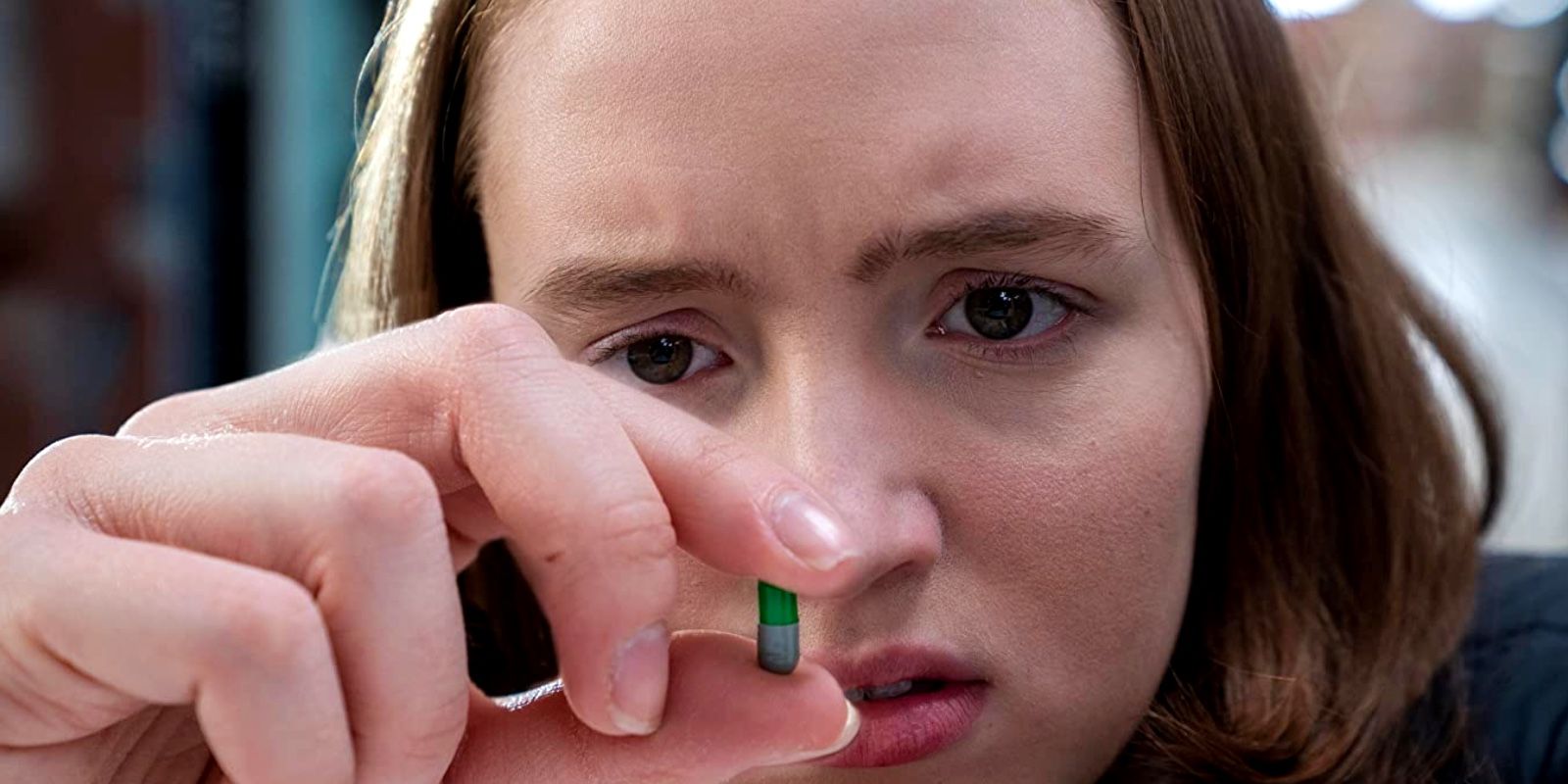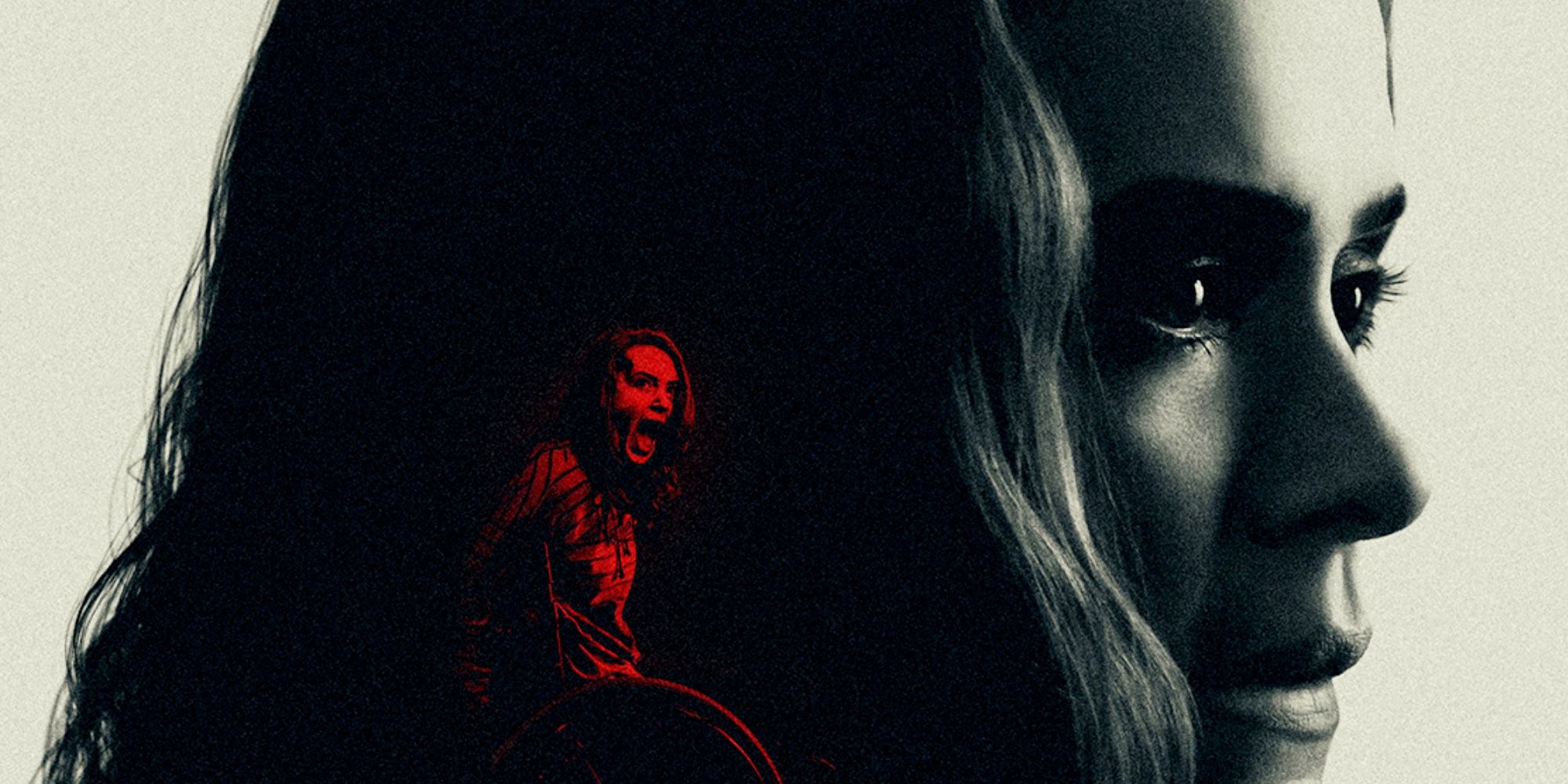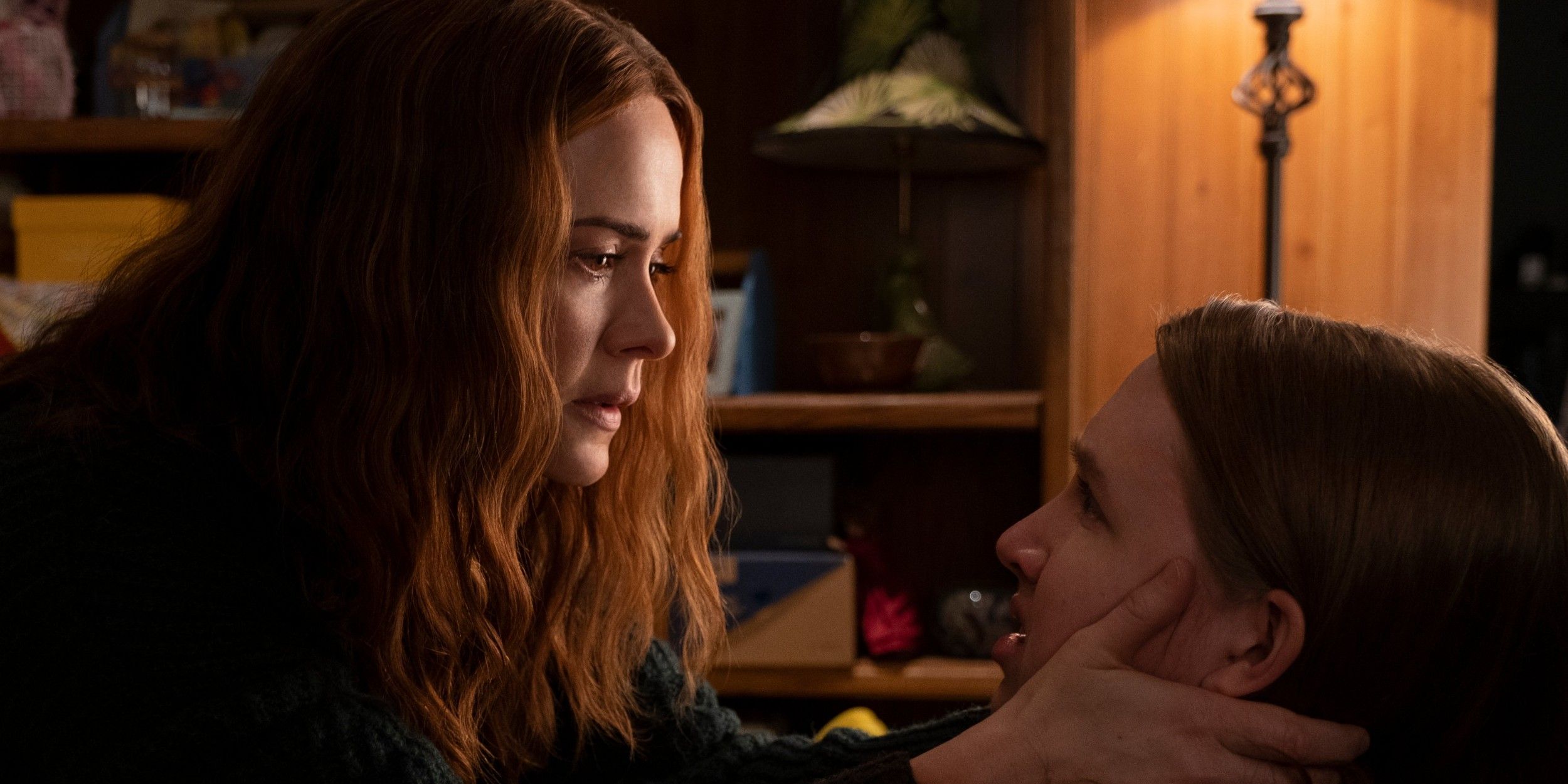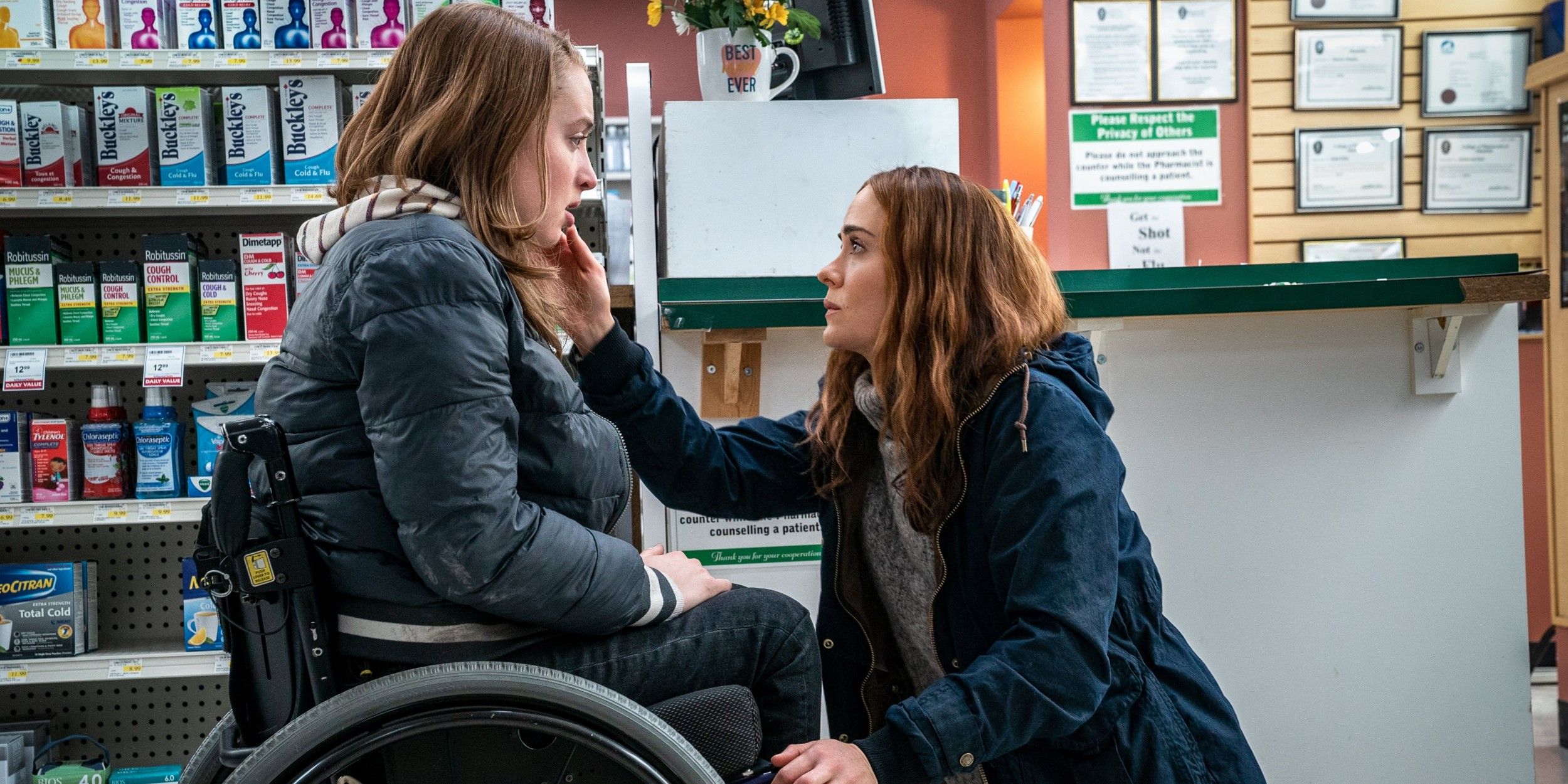WARNING: Major spoilers for Run ahead
Director Aneesh Chaganty's 2020 thriller, Run, leaves audiences with a breathtaking ending that raises quite a few questions about Chloe, Diane, and what their future will look like in the aftermath.
After his 2018 critically acclaimed directorial debut, Searching, Chaganty returned to form in the psychological thriller sub-genre with Run, which stars Sarah Paulson (American Horror Story, Ratched) and Kiera Allen. Exploring a mother/daughter relationship that has become strained due to Diane's obsessive hovering and smothering that directly ignores her daughter's desires for independence, Run proposes how a mother's love can be oppressive and even dangerous when she's threatened with losing her child. However, Run digs far deeper than that — it explores mental illness and co-dependent relationships, and while Diane is certainly not a sympathetic villain, her troubles are rooted in real life terror.
Run's ending shows Chloe turning the tables on her long-time captor; Diane is at her most vulnerable in a psychiatric facility. While this might seem like an open and shut ending, there's a lot to unpack about Chloe's mindset and Diane's ultimate fate that weren't made clear by the time the credits rolled. Run provides powerful commentary on the lasting effects of trauma, the cyclical nature of abuse, and how people can value justice or even vengeance more than a clean break. Here's our breakdown of Run's ending, the hospital twist, and what it all means.
What Happened In Run's Ending
After Diane's showdown with armed officers at the hospital while she was trying to escape with Chloe, she was wounded and ended up being institutionalized. While it might seem to Chloe's benefit to cut Diane out of her life, it speaks to her mental state that she continues to visit Diane in the hospital. Chloe could have easily detached from Diane, especially since Diane isn't her biological mother and possibly hasn't even legally adopted her. Beyond that, at the end of the movie, Chloe is an adult who has started a career of her own in the medical field, has a partner, and a child of her own. She's managed to create a successful life for herself on her own merits and seemingly has no reason to continue keeping Diane around. She does this because she wants to continue asserting control over her "mother" to assuage the emotional strain that stems from the period of her life where she had none. It's a complicated relationship, and seemingly always has been, but it's interesting that Chloe is so focused on vengeance after the fact when she seemed to always want her freedom before.
What's Going To Happen To Diane?
Chloe gives Diane a familiar green pill in Run's ending scene, which ultimately seals her fate. The audience is familiar with what the medicine does to someone based on how Chloe reacted to it throughout the movie. However, Diane is also subjected to whatever medications or treatments are being prescribed to her by hospital staff; she could be even more helpless, in that regard, than Chloe ever was despite her many illnesses. Presumably, Chloe's access to medicine means that she'll be able to not only continue getting this prescription filled to pass it along to Diane as continuing punishment and even torment for what she's done, but the ending also suggests Diane will be trapped in the institution forever. She's committed serious crimes; it's unlikely she'd be eligible for release, but there's nothing that says she couldn't eventually escape.
Diane has proven herself to be highly intelligent and capable; she's also manipulative, and if she managed to garner sympathy from someone, she might even be able to con her way out. It's unclear whether Run will receive a sequel, but since Diane is alive at the end of the movie and still has Chloe in her life in some capacity, it's possible a future storyline could see them at odds again. There's also the chance that, over time, Chloe will stop visiting Diane entirely. In a way, this would likely be a worse fate for Diane — she'd be completely disconnected from Chloe, and never have access to her again. Diane's obsession with Chloe and delusions don't seem to have faded even though she's been forced to come to the reality of her situation, to some extent. However, Chloe being fixated on doling out vengeance rather than condemning Diane to true suffering plays into Run's deeper meaning.
Run Ending Explained: What It Really Means
At its core, Run is about the cyclical nature of trauma, violence, and abuse. Even though Chloe managed to successfully escape Diane's clutches and start a seemingly successful life of her own, she's never able to escape what has been done to her. Instead of carving out a separate space for herself with her newfound freedom, she continually visits Diane and keeps her under her control. She inadvertently feeds into Diane's own delusions that Chloe cares for her, at least to the extent that she won't abandon her completely, and reinforces Diane's belief that Chloe "needs" her. In a way, the two women do need each other — their relationship was incredibly toxic, but the cycle of abuse and violence can result in the victim becoming an abuser. This is certainly not what always happens; people who have endured horrors like Chloe has survived can go on to become well-rounded, highly functional, happy people.
However, the final scene of Run suggests that, for some people, there really isn't an escape. Chloe's body is permanently altered from the long-term abuse and poison that she endured as a result of Diane's illness—very likely Munchausen syndrome by proxy—and she can't completely forgive her "mother". Beyond that, the more terrifying implication made in the movie's ending is that Chloe is empowered and even freed by finally being able to maintain full control over Diane. She's aware of where she is at all times, she's able to witness her in a vulnerable, isolated state, she can decide when they interact and when they don't, and she's in a position to literally give Diane a taste of her own medicine without anyone stopping her. It's a twisted quid pro quo that offers the thought that empowerment and control mean different things to people. Chloe has seemingly found some sort of closure or solace in now being able to become Diane's caretaker while constantly serving as a painful reminder of how Diane's obsession with control cost her everything.




